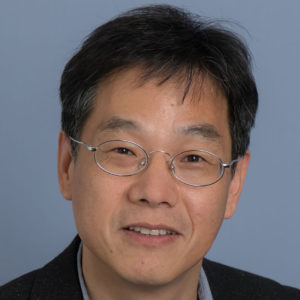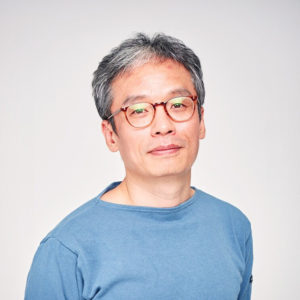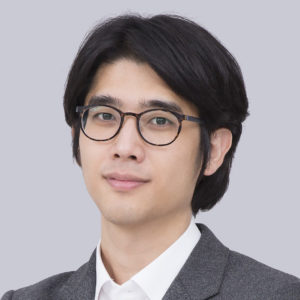W21: 2nd Workshop on Intelligent IoT Connectivity, Automation and Applications (ICA)
Co-chair: Jinho Choi, Deakin University, Australia
Co-chair: Seong-Lyun Kim, Yonsei University, Korea
Co-chair: Jihong Park, Deakin University, Australia
Keynote Speaker: Fumiyuki Adachi, Tohoku University, Japan
Abstract: The importance of the Internet of Things (IoT) has been ever-growing in tandem with its fostering new business growth and supporting a myriad of applications, ranging from environment monitoring and factory automation to connected autonomous vehicles (CAVs). Meanwhile, since 6G is genuinely about connecting everything and communication for machines, the role of IoT will be even more crucial. In essence, the success of such high-stake IoT applications rests heavily on efficient connectivity technologies. In 5G (Release 16 and 17), machine-type communication (MTC) and ultra-reliable and low-latency communication (URLLC) have been considered to support various IoT applications, and non-terrestrial networks (NTNs) are to significantly extend the scalability and the types of IoT applications in beyond 5G and 6G. At the other end of the spectrum, recent advances in distributed machine learning (e.g., federated learning) has transformed IoT applications from their prosaic and pre-programmed nature to intelligent and automated operations, enabling efficient local data collection, understanding the semantics of local environmental changes, and finally immediate responses to unforeseen events and emergencies. While IoT connectivity technologies and applications have made progress differently and separately, co designing the connectivity and applications can push the both frontiers and even create a synergetic effect particularly under limited radio spectrum shared by a large number of IoT nodes. This workshop is to discuss advancements in the aforementioned areas.
Co-chair Bios:
 Jinho Choi
Jinho Choi
Bio: Jinho Choi was born in Seoul, Korea. He received B.E. (magna cum laude) degree in electronics engineering in 1989 from Sogang University, Seoul, and M.S.E. and Ph.D. degrees in electrical engineering from Korea Advanced Institute of Science and Technology (KAIST) in 1991 and 1994, respectively. He is with the School of Information Technology, Burwood, Deakin University, Australia, as a Professor. Prior to joining Deakin in 2018, he was with Swansea University, United Kingdom, as a Professor/Chair in Wireless, and Gwangju Institute of Science and Technology (GIST), Korea, as a Professor. His research interests include the Internet of Things (IoT), wireless communications, and statistical signal processing. He authored two books published by Cambridge University Press in 2006 and 2010. Prof. Choi received a number of best paper awards including the 1999 Best Paper Award for Signal Processing from EURASIP. He is on the list of World’s Top 2% Scientists by Stanford University in 2020 and 2021. Currently, he is an Editor of IEEE Wireless Communications Letters and a Division Editor of Journal of Communications and Networks (JCN). He has also served as an Associate Editor or Editor of other journals including IEEE Trans. Communications, IEEE Communications Letters, JCN, IEEE Trans. Vehicular Technology, and ETRI journal.
 Seong-Lyun Kim
Seong-Lyun Kim
Bio: Seong-Lyun Kim is currently a Professor and Head of the School of Electrical & Electronic Engineering, Yonsei University, Seoul, Korea, leading the Robotic & Mobile Networks Laboratory (RAMO) and the Center for Flexible Radio (CFR+). He is codirecting H2020 EUK PriMO-5G project, and the chair of Smart Factory Committee of 5G Forum, Korea. He was an Assistant Professor of Radio Communication Systems at the Department of Signals, Sensors & Systems, Royal Institute of Technology (KTH), Stockholm, Sweden. He was a Visiting Professor at the Control Engineering Group, Helsinki University of Technology (now Aalto), Finland, the KTH Center for Wireless Systems, and the Graduate School of Informatics, Kyoto University, Japan. He served as a technical committee member or a chair for various conferences, and an editorial board member of IEEE Transactions on Vehicular Technology, IEEE Communications Letters, Elsevier Control Engineering Practice, Elsevier ICT Express, and Journal of Communications and Network. His research interest includes radio resource management, information theory in wireless networks, collective intelligence, and robotic networks.
 Jihong Park
Jihong Park
Bio: Jihong Park is a Lecturer (assistant professor) at the School of IT, Deakin University, Australia. He obtained B.S. and Ph.D. degrees from Yonsei University in Korea. He was a Postdoctoral Researcher at Aalborg University in Denmark and University of Oulu in Finland. His recent research focus includes communication-efficient distributed machine learning, distributed control, and distributed ledger technology, as well as their applications for beyond 5G/6G communication systems. He served as a Conference/Workshop Program Committee Member for IEEE GLOBECOM, ICC, and INFOCOM, as well as NeurIPS, ICML, and IJCAI. Currently, he is an Associate Editor of Frontiers in Data Science for Communications. He is a Senior Member of IEEE and a Member of ACM.
Deadlines:
Workshop paper submissions due EXTENDED: 23 March 2022
Acceptance notification: 17 April 2022
Final paper submission due: 1 May 2022
To submit a paper to this workshop, please visit: https://vtc2022s-rr-wks.trackchair.com/track/2055
For additional information, please visit: https://sites.google.com/view/ica-vtc2022
